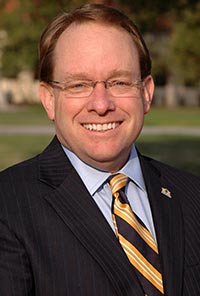The virus Ebola, now ravaging several West African countries, turned from jokes to rumors last week as concerns of a possibly infected student on Murray State’s campus grew.
These rumors sparked response from President Bob Davies Monday morning.
Students, faculty and staff received an email from Davies addressing these rumors and informing the University about what measures are being taken to ensure there are no infected persons on campus.
Karson Crass, sophomore from Murray, said she was unaware of the rumor before receiving the email, but was not surprised to hear there was one.
“With all the media coverage on Ebola everybody is getting a little hysterical about it,” she said. “‘Oh, we’ve got students here from Africa, they probably have Ebola.’ ‘Gosh, did you hear we have Ebola here?’”
Rachelle Peck, senior, said she learned of the rumor from a tweet she read. 
“I didn’t necessarily believe the rumor, but obviously with as much attention as Ebola is getting these days you can’t help but be a little nervous,” Peck said. “Also, the fact that we have so many international students here at Murray who may have come in contact with the areas that are affected made (the post) a little more believable.”
Murray State is hardly alone when it comes to false claims and rumors about Ebola-infected persons.
Stories of false infections have bombarded the media in the past month since the first case of Ebola was reported in the U.S. by the Centers for Disease Control and Prevention.
Since the virus’ arrival in America, the CDC was flooded with more than 800 false claims of Ebola per day, according to the United Kingdom news outlet Daily Mail.
Jay Morgan, provost and vice president of Academic Affairs, said the rumor started after word got out about a Murray State student who recently returned from studying abroad in Africa and was tested for Ebola.
“We asked that individual if they would go through a voluntary medical check, just for precaution,” he said. “They were very cooperative. There was nothing found, they are okay and there is no issue.”
He also added that the country the student traveled from already was cleared by the CDC of Ebola.
Morgan echoed Davies’ email that an infection in Murray is unlikely because of its rural area, limited international travel of the populace and the lack of a major metropolitan airport near the city.
However, he said, the University is still exercising safety measures stipulated by the CDC, as well as other health precautions.
“Our operating procedure has just been one of caution and common sense,” Morgan said. “Until students hear from the University that there is an actual case (of Ebola), basically everything they hear is rumor.”
Judy Lyle, associate director of Health Services, said this semester no students have come to Health Services suspecting they have Ebola.
She said they haven’t received phone calls from students’ parents expressing a fear of the virus being on campus which surprised her.
“There’s a nationwide panic about this in the media,” Lyle said. “Is it justified? I do think people ought to be concerned, but be concerned for more reasons than just one specific disease.”
She said one of her main concerns about health safety on campus isn’t Ebola, but the flu season.
Ebola and the flu share common symptoms including fever, headache, muscle weakness, pain and sometimes diarrhea and vomiting.
While Lyle said she was not worried about an increase in students with self-diagnosed cases of Ebola during flu season, she said Health Services will remain vigilant in their inspection of students to make sure it is flu symptoms that they are suffering from and not something else.
Story by Ben Manhanke, Staff writer